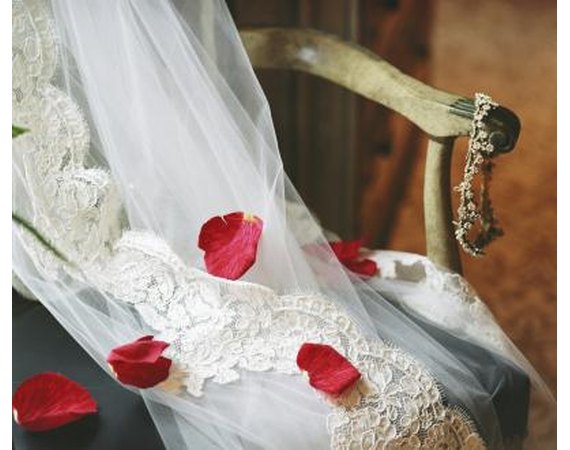
Following proper etiquette when mailing out wedding response cards, also called RSVP cards, along with the invitations adds dignity to the special occasion. Proper etiquette covers things such as wording and timing.
Function
- The wedding RSVP card allows guests to mail back their response. It is used only for weddings or receptions that require a head count.
Size
- RSVP cards measure 5 inches by 3.5 inches, the smallest size card the postal service accepts.
Wording Etiquette
- As only those listed on the inside and outside envelopes are invited, RSVP cards do not have a line asking for how many people will be attending. An example of formal response wording is as follows:
M ___ (The underline after the "M" must be long enough for the guest to write his or her full name, including "Mr.," "Mrs." or "Ms." If a number of doctors are invited, the "M" is omitted.)
___accepts
___regrets
Saturday the twenty-eighth of August
The Country Club
Informal response wording may simply give an option for attending and another for not attending. Some response cards may also include a place for guests to choose among dinner choices.
Return Envelope Etiquette
- Wedding RSVP cards should be self-addressed and pre-stamped so guests can simply write their answer and mail it back. Guests should not be expected to provide the postage themselves.
Timing Etiquette
- RSVP cards are sent with the wedding invitations at least six weeks prior to the big day with an RSVP date two weeks prior to the big day. This is to give guests enough time to decide their plans while allowing the bride and groom time to finalize the number of attendees just before the wedding.


















